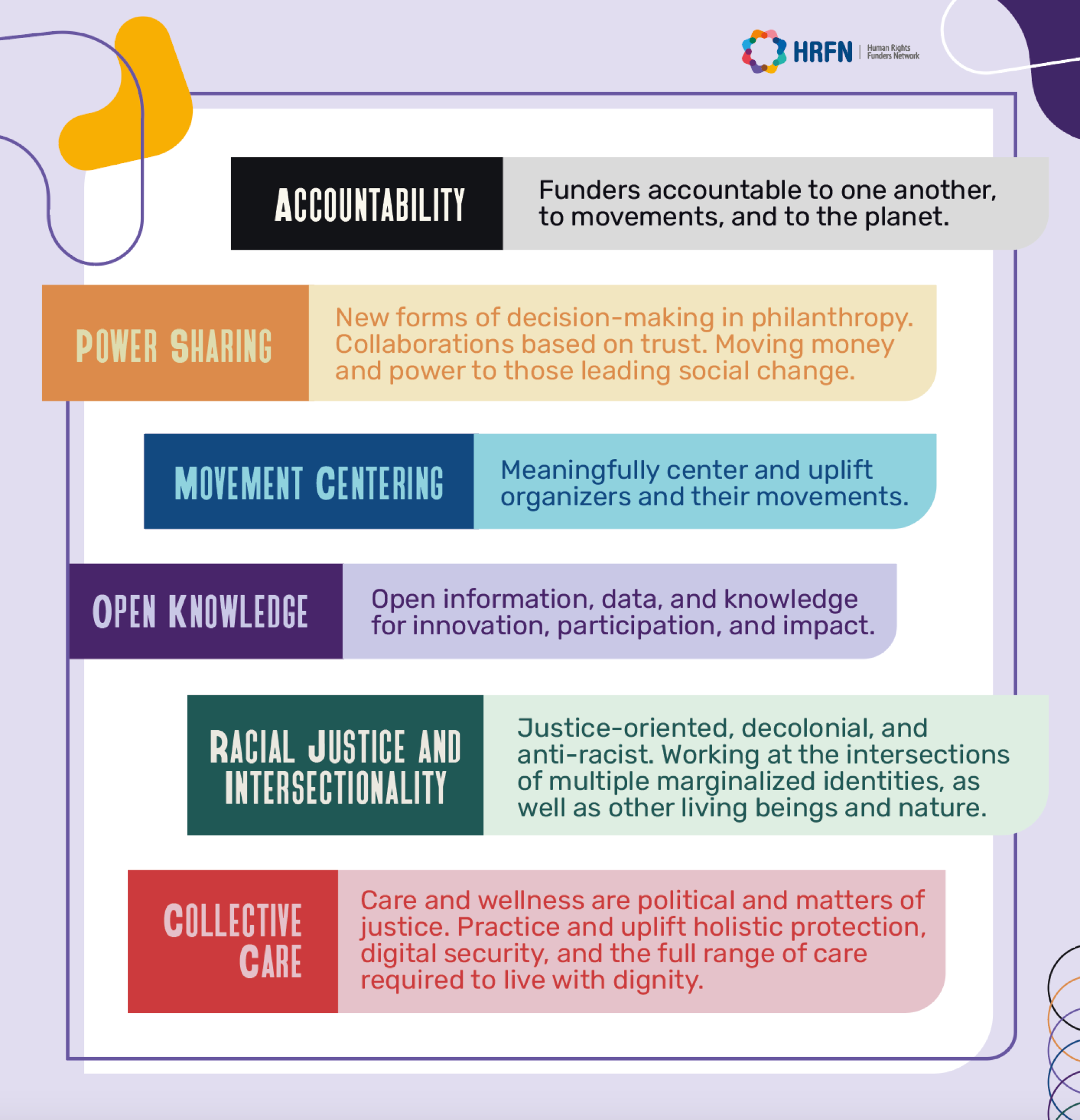OPEN PHILANTHROPY:
shifting resources and power
HRFN’s 2021-2025 strategic vision is oriented around a new concept: open philanthropy.
Open philanthropy is an approach and an ideal in which human rights funding is shaped for and by movements for social justice.
The goal of open philanthropy is a funding field that is actively open to sharing power, justice-oriented, accountable to those affected by funding decisions, and responsive to intersecting forms of injustice.
To meet these aims, open philanthropy encompasses six core values:
- Accountability
- Power Sharing
- Movement Centering
- Open Knowledge
- Racial Justice and Intersectionality
- Collective Care
Together, each of these values points to radical new possibilities for how we track, coordinate, and strive for change in this field.

Why Open Philanthropy?
At HRFN, we know that many funders want to significantly and sustainably support movements for justice. We also know that, as much as we have tried, we continue to work in silos and rely on funding models that reinforce rather than reimagine funders’ power.
Open philanthropy recognizes that the funding field is inherently undemocratic, traditional, and based on long-standing economic inequalities. We must shift not just resources, but power to people and the movements most affected by injustice and inequality.
We believe that we can only make change when we work together, acknowledge the ways that philanthropy is rooted in inequality and extraction, and embrace an ethos of openness – with each other and with the activists and movements working to advance human rights.
Origins
HRFN’s vision is inspired by open government initiatives across Latin America to promote more transparent, accountable public institutions.
Both open government and open philanthropy start with the premise that people should hold power over decisions and resources that affect their lives. The evidence is compelling: more accountable, transparent structures generate more just and equitable outcomes.